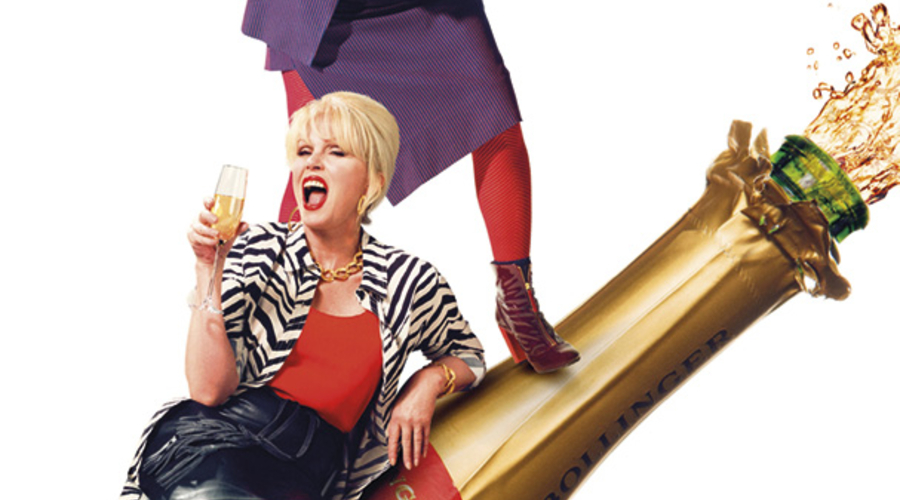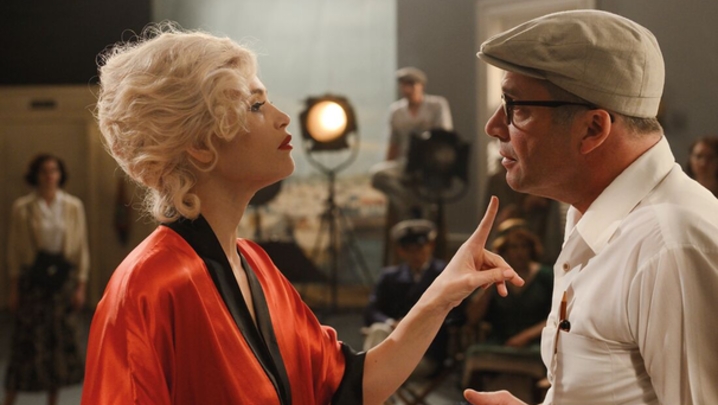Lucy Lumsden revels in Jon Plowman’s new book, an engaging mix of memoir and manual.
How to Produce Comedy Bronze is a glorious blend of memoir and manual. It looks back on Jon Plowman’s 30-year career as a freelance producer and BBC Comedy impresario, and speaks to the next generation of aspiring TV producers with various learnings accumulated along the way.
You don’t need to be in the business to enjoy this book, but it’s one for the comedy fan. There are insights into the making of Alas Smith and Jones, A Bit of Fry and Laurie, anything by Dawn French and Jennifer Saunders, Bottom, The League of Gentlemen, The Office, Little Britain and W1A.
Jon’s story is busy, to say the least. It spans from his roots in theatre at Oxford University, where his contemporary Mel Smith outshone his three-man, one-act play Oldenburg with an all-singing all-dancing production of Marat/Sade, to briefly working as a TV reporter for Granada, before he realised that he was no David Dimbleby, right through to Comic Relief, Dawn and Jennifer’s multiple series and, more recently, Absolutely Fabulous: The Movie.
His account is also snappy, informative and full of indiscretions. And, somehow, he gets away with these.
This is no mean feat, given that he’s still very much in the business and needs to stay friends with people in high places.
“My television career began with a lie,” begins one chapter. Jon was driven by the need to avoid a desk job by any means necessary.
He went from casting assistant in the late 1970s on Absolution, a movie starring Richard Burton, to teaching Iranian girls how to speak English so that they could get work on the make-up counters at Harrods. On his way up, he produced a late-night show with the medium Doris Stokes.
So, it’s not the silver-spoon start in comedy that you might have assumed. No making cups of tea for Spike Milligan or brown-nosing the Cambridge Footlights, but a winding path, chiefly through entertainment. This led him to working with Russell Harty and then Terry Wogan on their talk shows.
The only brown-nosing was with celebrities to try and persuade them to appear on an “ulcer-inducing” live show, week in and week out. And that experience got Jon his first gig in comedy, producing Comic Relief.
The second half of the book treads some familiar territory, as he describes his time as head of comedy entertainment at the BBC. There, he had to deal with me on a daily basis. I was the controller of comedy commissioning, sitting with the channel heads up on the 6th floor of Television Centre. It was a role created as the centre of gravity shifted at the BBC in response to the growth of the indie sector.
This was the early noughties, the era of Little Britain, The League of Gentlemen, Extras, Jam and Jerusalem, Hyperdrive and The Thick of It, to name but a few.
Jon describes how he was something of a reluctant head of department, hardwired to be on the side of writers and talent. And, as Dawn French says in her foreword, “a brilliant Cerberus”.
So, I would often have to play the role of “dream crusher” and go down to the 4th floor with the latest bit of news about what we might be able – or, rather, not be able – to afford.
“If you don’t commission this, we might as well all give up and make Countryfile”, was one of Jon’s familiar complaints as his cries echoed round the corridors of Television Centre.
Don’t feel too sorry for him, though, he was better than most at getting a “yes” from a commissioner. Those persuasive tactics he used to get guests for Harty and Wogan stood him in good stead, and the wrath of Jon was very effective.
There’s a great chapter on his time spent in the US, immersed in the writing rooms, watching US showrunning in action. This, by the sound of it, made him even more appreciative of our British craft of comedy production.
Throughout, there are many little-known facts about shows we all love. We learn that The Vicar of Dibley wasn’t originally written for Dawn French, that The Archers’ Ambridge was the inspiration for Royston Vasey, and that, for The Office, Ricky Gervais and Stephen Merchant wanted to cast people who looked right, rather than people who could act.
Buy the book for the explanation of an executive producer’s role on Little Britain alone. There, Jon had to make a call on just how big a certain bodily fluid stain on Anthony Head’s jacket needed to be in order to get the biggest laugh.
For fans of W1A, Jon describes how his legendary moans about the BBC systems were put to good use as he became a self-appointed researcher for writer and director John Morton.
He would forward the latest corporate babble, including PowerPoint presentations about the alleged benefits of toilet-roll dispensers.
And how an intern who had been working at the BBC without pay for 15 months (he was the producer’s cousin, of course) would become the inspiration for the intern character Will Humphries, brought to life by the brilliant Hugh Skinner.
Jon writes exactly as he speaks. He’s self-deprecating (it’s there in the title), he’s a great storyteller and gives the occasional side-swipe.
The book is made up of joyously short chapters which make it all bounce along, accompanied by orders to “Google it!” or “Look it up on YouTube!”, which I dutifully did.
Anecdotes from Jon’s career are peppered with lessons and top tips that randomly pop up like quickies in a sketch show:
“Know your limits even when you’re way beyond them” or “Be careful what you agree to… exercise the same care that you would when offering a locust just the tiniest nibble from a lettuce leaf”.
And there are some touching mentions of the late Geoffrey Perkins, another highly talented head of comedy, and actor Emma Chambers, two names dear to Jon and the world of comedy who left us far too early.
But, of all the many shows and people mentioned, a good chunk of the book is a rather touching love letter to Dawn French and Jennifer Saunders.
He returns to them again and again, just as, over the years, they returned to him as their go-to producer. The Vicar of Dibley, and Jon’s description of its production (delightfully noted as a “happy spell”) is a masterclass on the crucial elements of great sitcom: a simple premise, great timing, synchronicity of writer, producer and director, and a perfect cast.
Then there’s Absolutely Fabulous – a tiny sketch developed, expanded and Joanna Lumley’d into an award-wining global phenomenon and a hit movie. No bronze here, only gold.
In How to Produce Comedy Bronze, we have a rare insight into the peculiar and precious art of comedy, and a memoir from someone who has been at the epicentre of some of our greatest comedies in recent years.
Jon is a fun-seeker, mischief-maker, stress-coper and the ultimate reluctant professional who, thankfully, never grew up. We salute him and look forward to the next instalment.
Lucy Lumsden runs Yellow Door Productions.







